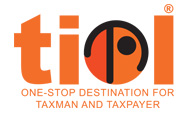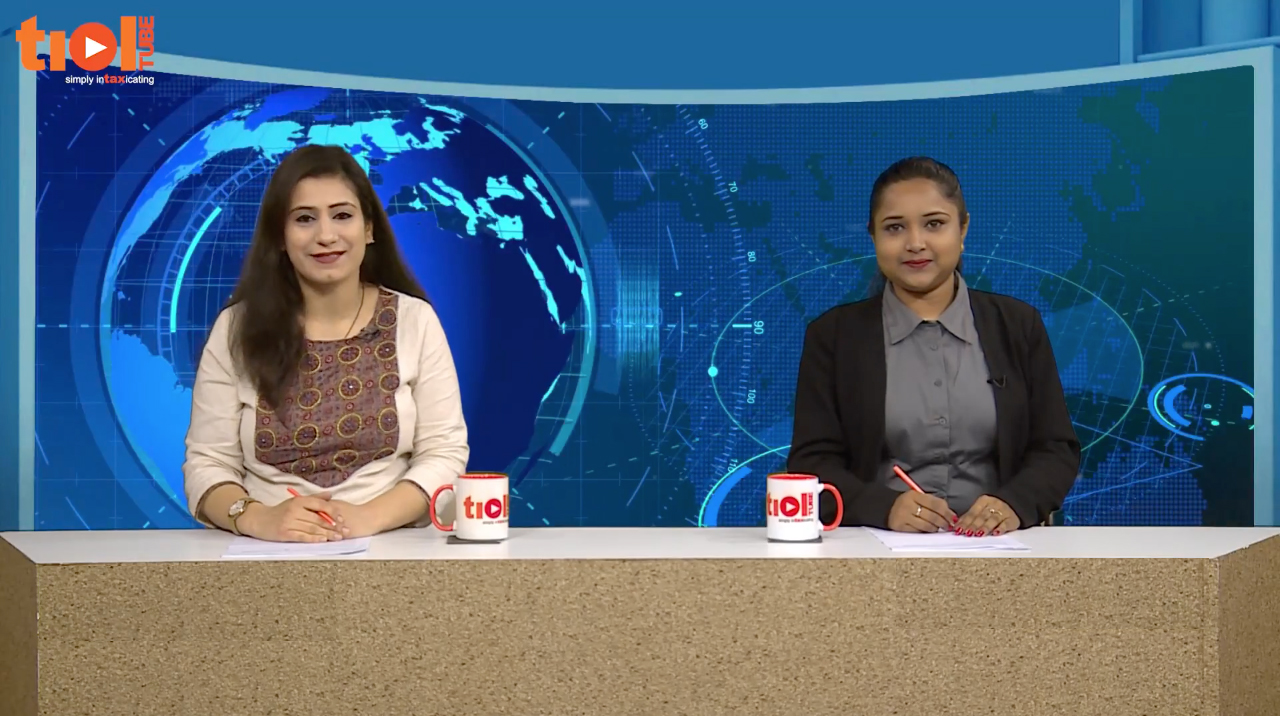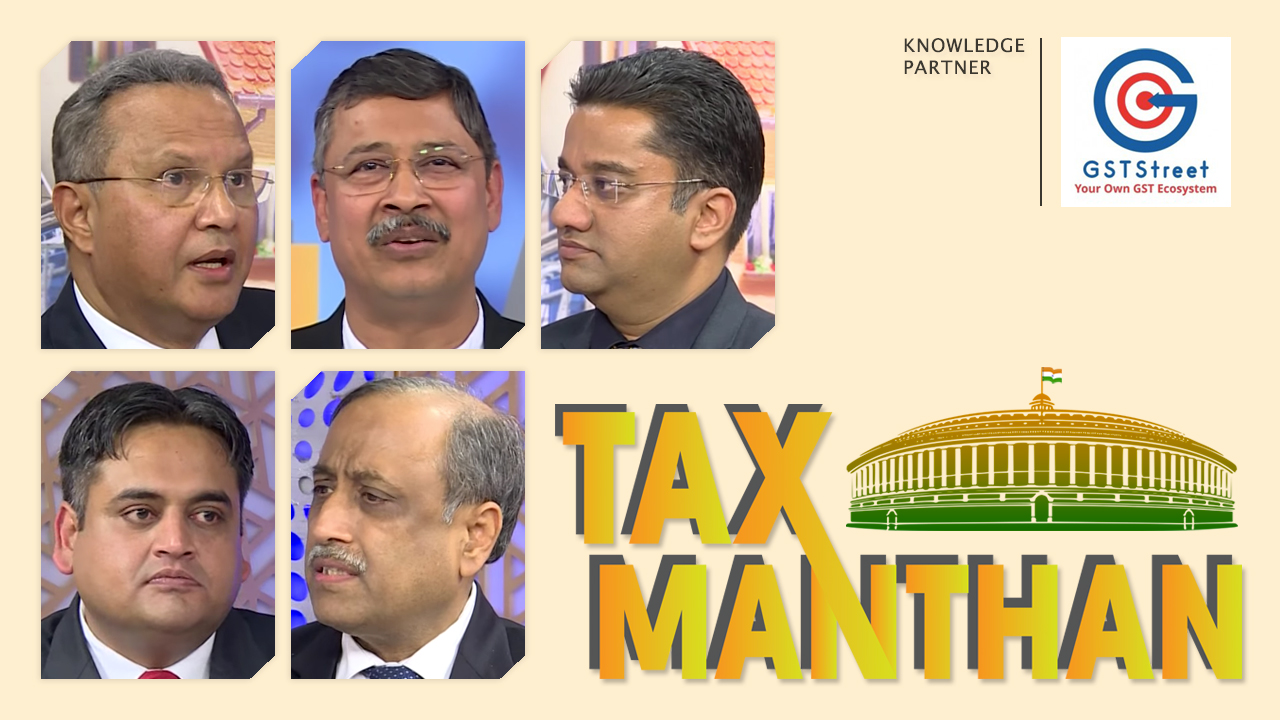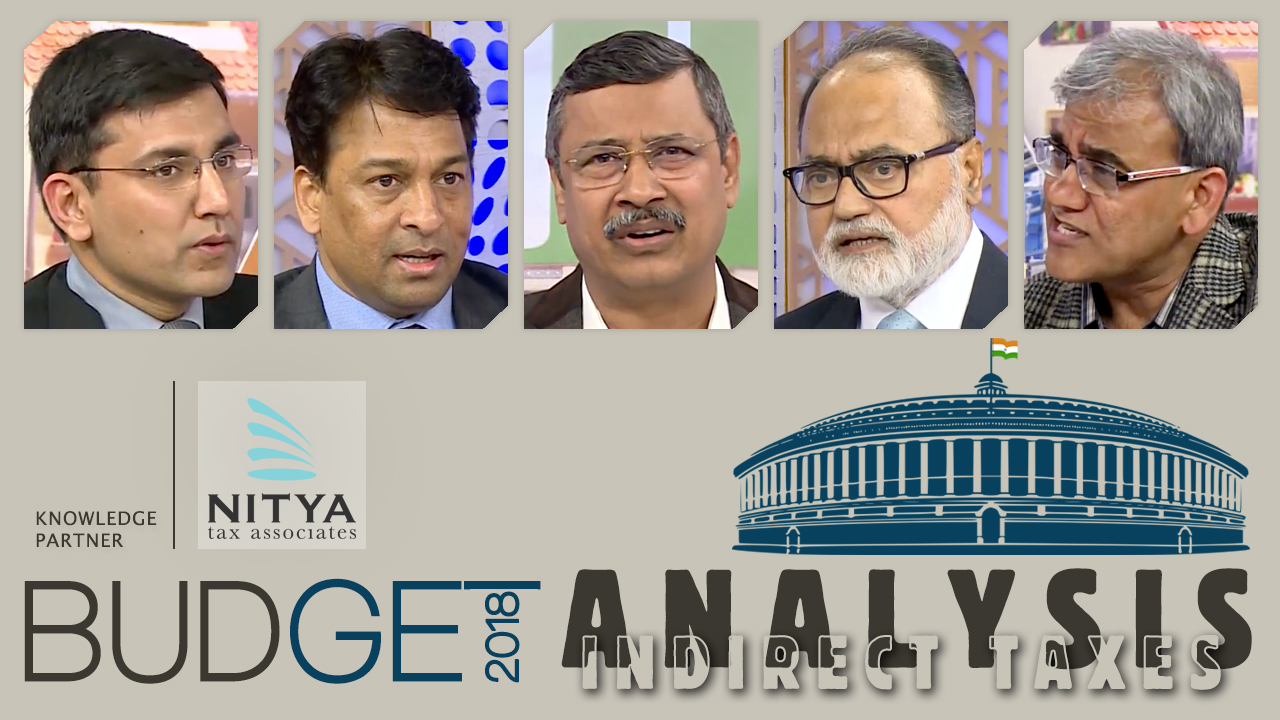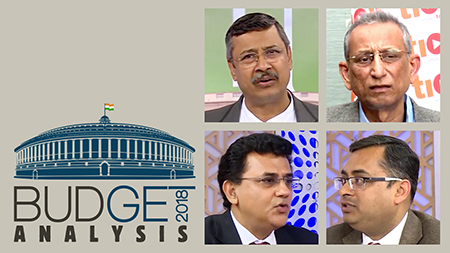CENTRAL EXCISE SECTION
2018-TIOL-662-CESTAT-MUM
Gkn Sinter Metals Pvt Ltd Vs CCE
CX - CENVAT - Input Service - Rule 2(l) of CCR, 2004 - Where the sales take place at the buyer's premises, the credit availed on the Goods Transport Agency service services has to be allowed even after the amendment dated 01.04.2008 of the definition as held in a number of cases - Inasmuch as the sales in the present case are admittedly on FOR basis, the appellant are entitled to the Cenvat Credit of Service Tax paid to courier services for outward transportation of the appellant's final product - impugned order set aside and appeal allowed with consequential relief: CESTAT [para 3] - Appeals allowed : MUMBAI CESTAT
2018-TIOL-661-CESTAT-MUM
Godrej And Boyce Mfg Co Ltd Vs CCE
CX - CENVAT - Input Service - Rule 2(l) of CCR, 2004 - Outdoor Catering Services - Credit denied on the ground that such services were excluded from the definition of Input service w.e.f 01.04.2011 - Period involved is May 2011 to February 2015 - Appellant submits that Outdoor Catering services were provided during the Annual Day function of the company where most of the invitees are suppliers, vendors, customers, dealers and their families along with families of employees; that the exclusion applies only when such service is primarily for personal use for consumption of any employee; that annual day function is organized mainly for outsider business guests, however, some employees' families also attended but majority of such invitees are more than the employees' families of company, therefore, services were not primarily used for personal use or consumption of any employee; that demand is barred by limitation.
Held: Ratio of the total number of persons billed by the caterers and total number of employees who attended the function is given as a tabulation by appellant and from the same it is observed that outdoor catering service was mainly provided to outsider business guests and, therefore, it cannot be said that the services fall under the exclusion category - Tribunal has also allowed credit on identical services - as regards submission of demand being time barred, it is seen that on identical issue auditors have raised objection by issuing SCN dated 24.04.2015 for almost the same period and, therefore, in view of the Supreme Court decision in Nizam Sugar Factory - 2006-TIOL-56-SC-CX , once SCN for a particular period was issued, for the same period, another SCN cannot invoke extended period - demand is clearly time barred - demand of CENVAT credit is not sustainable on merit as well as on limitation - Impugned order set aside and appeal is allowed: CESTAT [para 4] - Appeals allowed : MUMBAI CESTAT
2018-TIOL-660-CESTAT-MUM
Henkel Adhesives Technologies India Pvt Ltd Vs CCE
CX - Appellant entered into contracts with their dealers/distributors for sale of their goods - As per the contract the dealers/distributors have been assigned rights for selling the goods in Mumbai area and one of the clauses of the agreement is the sharing of 50% expenses incurred on account of sales promotion expenses namely advertisement expenses – Case of the department is that the 50% advertisement expenses incurred by dealers/distributors should be included in the Assessable Value of appellant's goods in terms of section 4(3)(d) of CEA, 1944 – Commissioner confirmed demand – appeal to CESTAT.
Held: Issue is no longer res integra - On reading of the contract, it is observed that there is no compulsion on dealers/distributors to perform the advertisement - It is on the discretion of the dealers/distributors that whatever advertisement in respect of the appellant's goods is done, 50% of the actual cost will be borne by the appellants and remaining 50% will be borne by the dealers/distributors - In this fact, the 50% is borne by the dealers/distributors which is the expenses of the dealers/distributors and the appellant has nothing to do with that portion of the 50% - Amount of such advertisement is not flowing to the appellant as an additional consideration, therefore, it cannot be said that the dealers/distributors bearing the advertisement cost to the extent of 50% is part of the assessable value - Relationship between the appellant and the dealers/distributors is on principal to principal basis, therefore, only consideration received by the appellant alone will form the transaction value, no further addition should be made – demand confirmed by lower authority is not sustainable – impugned orders are set aside and appeals are allowed: CESTAT [para 4, 5] - Appeals allowed : MUMBAI CESTAT
CUSTOMS SECTION
NOTIFICATIONS
cnt16_2018
CBEC appoints authority to adjudicate SCN issued to certain assessee
cnt15_2018
CBEC appoints authority to adjudicate SCN issued to certain assessees
CASE LAWS
2018-TIOL-345-HC-KAR-CUS
Royaloak Furniture India Llp Vs DGFT
Cus - Petitioner has filed writ petitions against the impugned SCN Annexure-A, dated 6.1.2017 on the twin grounds of validity of provisions of sub-section (11) of section 28 of Customs Act, 1962 [Act] inserted by the Customs (Amendment & Validation) Act, 2011, with effect from 16.9.2011 and also lack of jurisdiction of the respondent-Additional Director General to issue the said SCN :
HELD - as per the well settled legislative practice of undoing the effect of the judgments of the Constitutional Courts by removing the defects pointed out by the Courts of law, the legislature came forward to frame laws in consonance with the legislative objects sought to be achieved - the provisions of section 28(11) accordingly were inserted on 16.9.2011 soon after a decision of the Supreme Court in Sayed Ali's case [2011 (265) E.L.T.17 (S.C.)] rendered on 18.2.2011, as apparently otherwise, it would result in quashing of the proceedings on the basis of lack of jurisdiction and would render several SCNs and proceedings liable to be quashed in terms of the said judgment - the said provisions cannot be said to be unguided or arbitrary so as to fall foul with Article 14 of the Constitution of India in any manner - in view of multiple imports by the same assessee which may be in the different territories of India, the conferment of jurisdiction on all the authorities on pan India basis for the smooth functioning and discharge of their duties is not only necessary and essential, but appropriate also and any interpretation otherwise, if the contention of the petitioner was to be accepted, would defeat the very purpose of the Act and, therefore, section 28(11) inserted in the provisions of Act where section 28 deals with recovery of duties not levied or short-levied or erroneously refunded, is found to be perfectly in consonance with the scheme of the Act and the provisions of section 28 of the Act itself - since the Apex Court [in the case of Sayed Ali] found that the Revenue's contention that once the territorial jurisdiction is conferred, the Collector of Customs (Preventive) becomes a ‘proper officer' in terms of section 28 of the Act is not acceptable, the Parliament had no option, but to declare even these Anti-evasion Wing officials to be ‘proper officers' to legally vest them with the jurisdiction to undertake the proceedings for assessment - this was obviously done to save the proceedings in the Courts of law particularly Constitutional Courts challenged on the technical and narrow ground of lack of jurisdiction - the very purpose of the Act cannot be allowed to be defeated on such technical grounds and, therefore, need to amend the law obviously arose because of the judgment of the Apex Court in Sayed Ali's case and this Court does not find any ground to now strike down section 28(11) of the Act - the said contention of the petitioner is, therefore, liable to be rejected and accordingly it is rejected - on the facts of the case virtually, nothing remains for admission of the writ petitions in the Court under Article 226 of the Constitution of India - the petitioner must go to the concerned authority, namely, the Commissioner where he has been called upon to show cause in pursuance of the impugned SCN issued by the Additional Director General and it is left to the concerned Commissioner to adjudicate the SCN in accordance with law - from the records, the petitioner does not appear to have filed any reply or objections to the said SCN before the Principal Commissioner/Commissioner of Customs, Bengaluru - therefore, the challenge to such SCN must fail as premature - accordingly, the writ petitions are dismissed : HIGH COURT [para 12, 13, 14, 18, 19, 20] - Writ Petitions dismissed : KARNATAKA HIGH COURT
2018-TIOL-344-HC-DEL-CUS
Micromax Informatics Ltd Vs UoI
Cus - Payment of interest on late refund of SAD - Petitioner before High Court praying for declaring paragraph 4.3 of the Circular No.6/2008-Cus dated 28.4.2008 as ultra vires and contrary to provisions of section 27A of the Customs Act, 1962[Act] -petitioner has also prayed for quashing of the order No.VIII(20)/ICD/TKD/Refund/651/16 dated 3.8.2017 to the extent it does not grant interest on delayed refund as being contrary to the judgment of the Delhi High Court in Riso India Pvt. Ltd. - 2015-TIOL-2384-HC-DEL-CUS .
HELD: SAD refundable was a duty paid by the petitioner under the Act in respect of which exemption vide notification 107/2007-Cus dated 14.9.2007 has been granted by the Central Government- the expression 'duty' used in clauses (a) to (h) of sub-section 2 to Section 27 of the Act was interpreted in Riso India Pvt. Ltd. as wide enough to cover all kinds of customs duties as per the definition clause section 2(15) of the Act -duty would include SAD -this decision also refers to section 3(8) of the Customs Tariff Act, which stipulates that provisions of the Act, including those related to drawback, refunds and exemptions shall apply to SAD as far as may be -thus, SAD levied under the Customs Tariff Act is a duty within the meaning of section 27, and refunds under sub-section 2 to section 27 A of the Act when delayed beyond 3 months from date of application, interest would be payable in terms of and as per Section 27 of the Act -in the aforesaid decision, notwithstanding paragraph 4.3 of Circular No.6/2008 dated 28.4.2008, direction was given to pay interest in terms of section 27A of the Act -the reason was and the Division Bench has held that paragraph 4.3 of the Circular No.6/2008 dated 28.4.2008 was not in consonance with and in accord with statutory mandate of section 27A, which was applicable to refund payable under notification no.102/2007-Cus -the result would be that paragraph 4.3 of the Circular No.6/2008-Cus . dated 28.4.2008 has to be struck down -the said circular does not correctly interpret provisions of section 27A of the Act to deny claim for payment of interest -accordingly, it is held that interest would be payable in terms of section 27A of the Act on refund of SAD payable in terms of notification no.102/2007-Cus -resultantly, the writ petition is allowed and the impugned order dated 29.9.2017is quashed and set aside -the respondents would pay interest in terms of section 27A of the Act within a period of 8 weeks : HIGH COURT [para 11, 15, 18, 19, 20, 21, 23] - Writ Petition allowed : DELHI HIGH COURT

